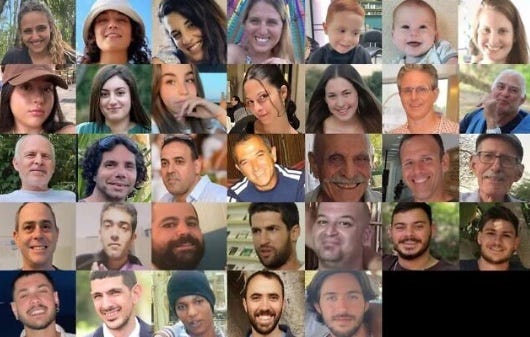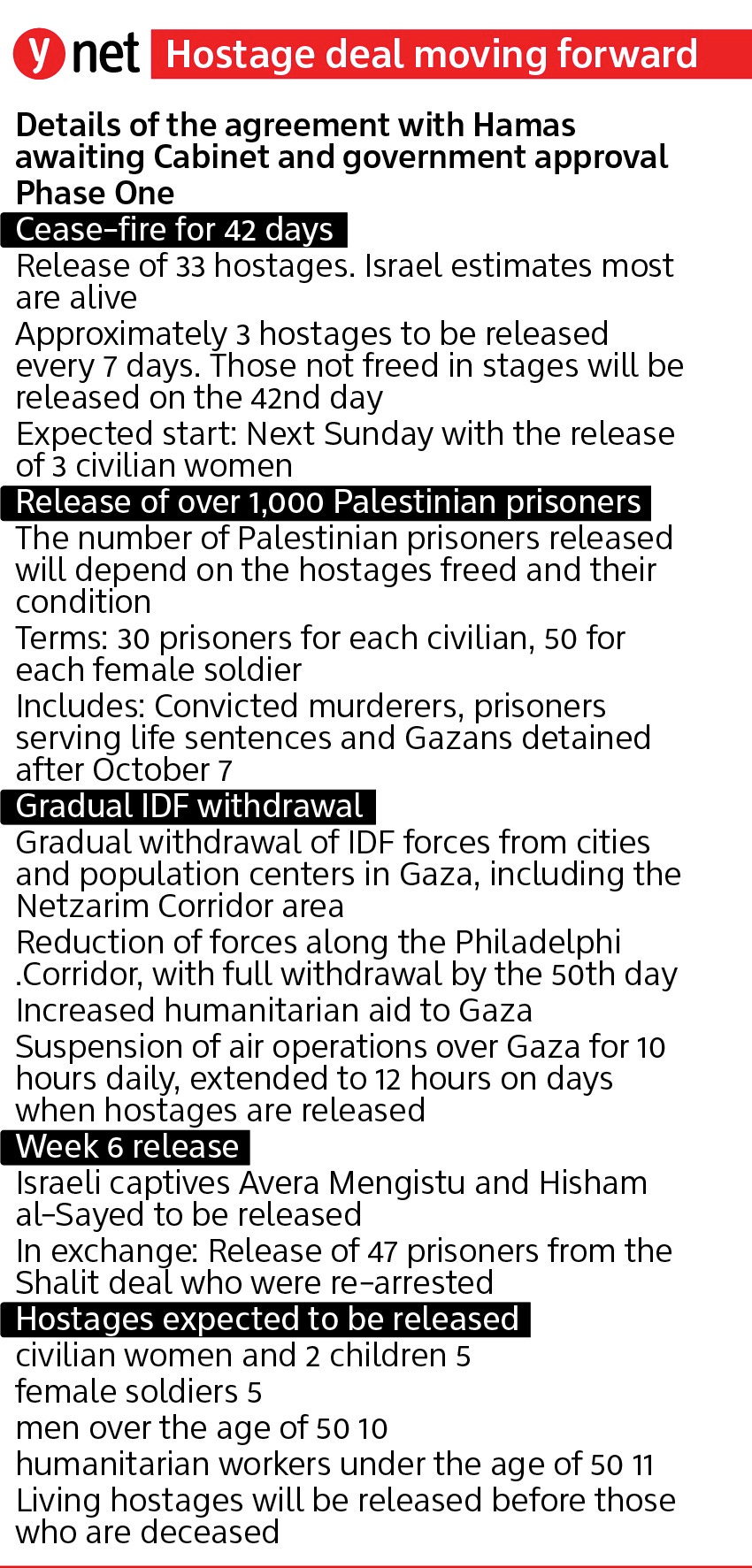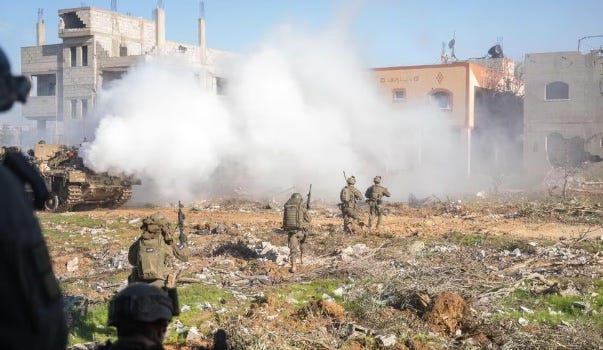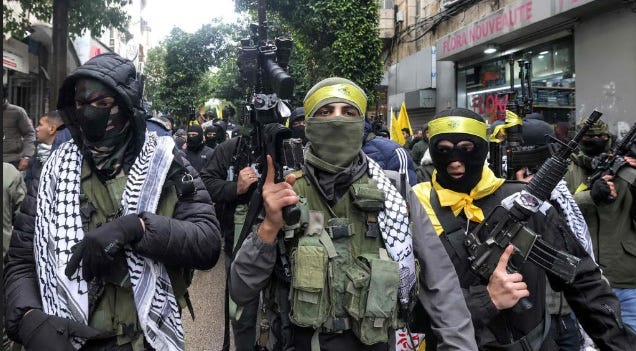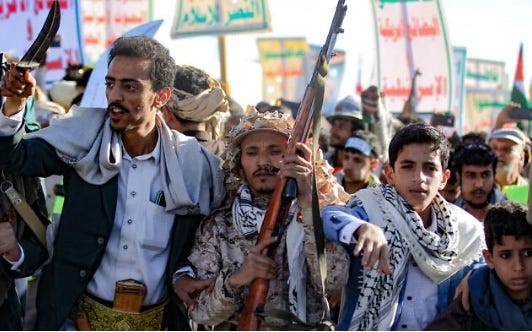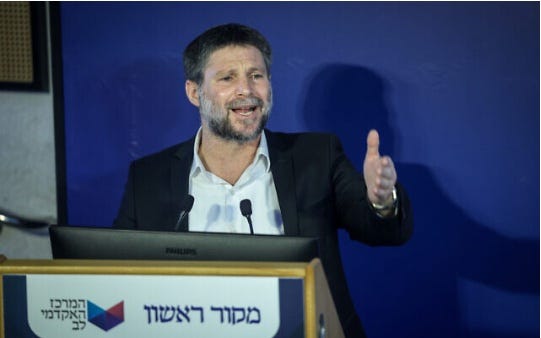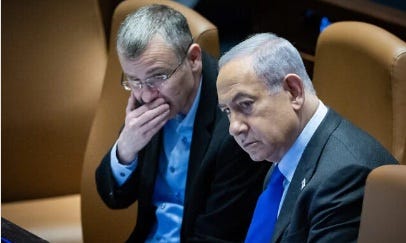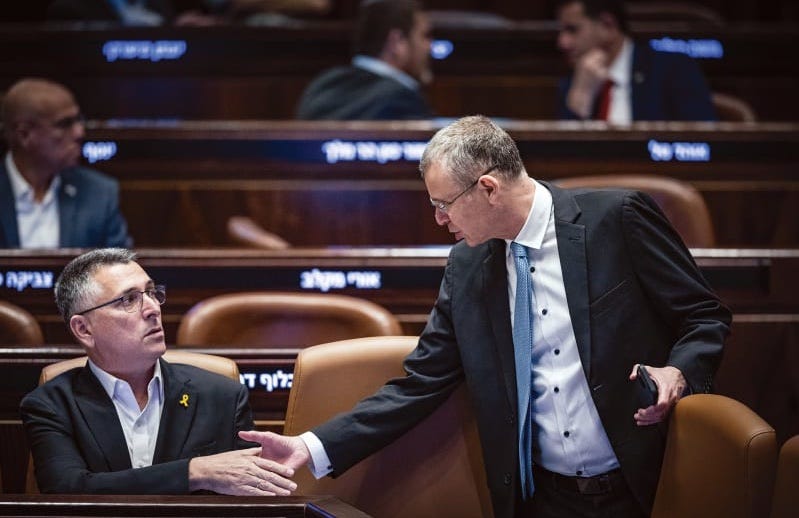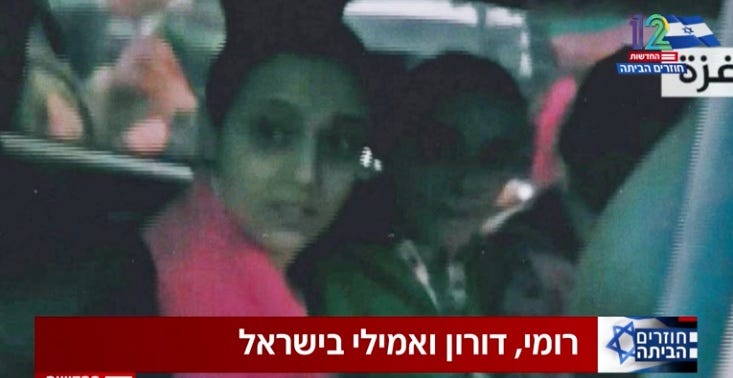War And A Ceasefire
Emily (left in black) Romi (center in green) Doron (right in red)
After 15 months of war a ceasefire in the fighting in Gaza finally went into effect at 11:15 am on Jan 19,2025 after Hamas provided a list of 3 females, civilian not soldiers, hostages held in Gaza for 471 days. The list was to have been provided on Jan 18, 2025 but Hamas, as expected, dragged out providing the list. According to experts, Hamas did this to further unnerve the Israeli public.
Commentators stress that Hamas is a terrorist organization and not a government and continues to act like a terrorist organization up to the last minute.
Israel had continued to bomb Gaza when the deadline for providing the names of the hostages had passed. According to CNN the bombardment came after the highly anticipated ceasefire deal was delayed with Israel insisting that it would not go forward until Hamas provided the names of hostages to be released later in the day. Hamas blamed “technical” reasons for the delay.
The names of the three female hostages are Romi Ronen, 24, from Kfar Vradim, abducted at the Nova festival; Emily Damari 28, a British citizen abducted from Kfar Aza, and Doron Steinbrucher 31, a nurse, also abducted from Kfar Aza.
Doron Steinbrecher, Emily Damari, Romi Gonen
The three women reached Israel on Sunday night and reportedly were on their feet and appeared to be in decent shape. However, extensive medical tests awaited them.
The phase one process is expected to last 42-days with three to four hostages released each Saturday for six weeks and a final 14 at the end of that period. That is assuming that Hamas doesn’t break the ceasefire agreement resulting in Israel resuming hostilities. It is also unknown how many of the remaining hostages are still alive. This deal for Israeli hostages is in exchange for 1,904 Palestinian prisoners, including some with “blood on their hands.”
Negotiations for phase two of the agreement are to begin 16 days after the start of the ceasefire. Between day 42 and day 50 of the agreement the IDF will withdraw from the Philadelphi corridor. According to experts, Phase two is the big bump in the road that may undo the agreement.
According to CNN, on Sunday morning Jan 19th, displaced Gazans started to return to their homes, while aid trucks lined up on the Egyptian side of the Rafah border crossing ahead of the deal going into effect.Gazans reportedly were celebrating the ceasefire as a victory.
However, according to Arab experts Hamas and the Arab world in general has long been accustomed to exaggerating their success and denying their failures.
According to Ynetnews, Prime Minister Benjamin Netanyahu was informed early Friday morning Jan 17, 2025 by the negotiating team in Qatar that agreements had been reached on a deal to release the kidnapped Israelis.
This was reported by his office, which added that Netanyahu had ordered the political-security cabinet and then the full cabinet to convene Friday to finalize the deal and approve the agreement that had been signed in Qatar between Israel and Hamas.
According to the terms, Israel was to present a list of Palestinian prisoners to be released. Hamas to present the list of Israelis to be released.
In addition, it was reported that the families of the kidnapped were informed of the agreement by the Directorate of Abductees, Missing Persons and Returnees in the Prime Minister's Office.
Netanyahu instructed the Coordinator of Captives and Missing Persons, Gal Hirsch, to coordinate preparations for the absorption of the kidnapped upon their return to Israel.
The fighting was supposed to have stopped on Sunday, Jan 19, 2025. However, on Thursday Jan 16th the skies were still occasionally noisy with fighter-jets streaking towards their targets either in the north, in Lebanon, where Israel is allowed to operate should they spot infractions in the ceasefire with Hezbollah, or in the south, in Gaza, where Hamas is still active.
According to Ynetnews, Netanyahu’s Likud party issued a statement concerning the agreement. The statement detailed the reasons why Prime Minister Benjamin Netanyahu agreed to the deal. This included the practical matter: the agreement, according to the Likud, allowed Israel to "receive the weapons and means of warfare it needs, maximize the number of live hostages released, maintain full control of the Philadelphi Corridor and the security buffer that surrounds the entire Gaza Strip, and achieve dramatic security achievements that will ensure Israel's security for generations."
However, according to experts, the war will not end with the ceasefire. The agreement states that as of Sunday Jan 19, 2025, first the 3 female hostages will be released, followed by the staged release over the following 42-days of another 30 hostages. The identities of those set to return are expected to be provided 24 hours before each release.
Included will be two Israelis held for over a decade in Gaza. Avera Mengistu, an emotionally deficient Ethiopian Israel who wandered into Gaza and has been held for 3,785 days.
A full list of the hostages has still not been provided, nor is it clear who among them is still alive.Nor is the order of who will be release clear
This uncertainty has driven some of the hostage’s family members to distraction.
One man told Reshet Bet radio that he was up, ecstatic one day, with news of an impending agreement and depressed the next day with news that no agreement had been reached.
On Sunday, Jan 19,2025, IDF special forces recovered the body of Sgt. Oren Shaul, who had been killed in 2014 during operation Tzuk Eytan. He was to have been returned in Phase Three of the agreement. This brings the number of hostages down to 94.
The Red Cross sent SUVs into Gaza to transport the three hostages to the Israel/Gaza border. However, critics point out that the Red Cross has been extremely negligent in their duties up until now. They never entered Gaza to visit the Israeli hostages nor report on their health and conditions.
Shiri Bibas and her sons Ariel, 4, and baby Kfir, are abducted from Kibbutz Nir Oz by Hamas terrorists on October 7, 2023
According to the Times of Israel The fates of a 2-year-old Kfir Bibis and his four-year-old brother Ariel who were taken hostage by Hamas on October 7, 2023 have been on everyone’s mind in Israel since the announcement of a Gaza ceasefire.
Kfir Bibas is the youngest of the 251 hostages seized by terrorists during Hamas’s brutal and unprecedented attack on southern Israel more than 15 months ago, which killed over 1,200 people and began the war in Gaza.
Hamas said in November 2023 that Kfir, his brother Ariel and their mother Shiri were killed in an Israeli strike, but since the Israeli military did not confirm their deaths, many are clinging to the hope they are still alive.
As stated above, 16 days following the initial release of hostages talks are to begin for Phase II. This is what some pundits call the “nail-biting stage,” since anything can happen to disrupt the cease-fire.
If and when phase two is implemented, an additional 55 hostages will be released, mainly male soldiers and male civilians. Phase III would be the return of all the bodies of the remaining. hostages. And then a permanent ceasefire would be put into effect.
The agreement also stipulates that the temporary cease-fire will continue as long as negotiations on the second phase continue and the mediators are committed to working within its framework to continue the negotiations.
This clause calls into question the continued presence in the Philadelphi corridor if the negotiations on the second phase drag on beyond the 42-day limit. The question also arises in TV panels if the U.S. under Trump will force Israel to continue participating in the talks should issues arise, like Hamas breaking the ceasefire, or Israeli political interests interfering with the process..
However, Military correspondent Nir Dvori said on a Channel 12TV panel that there are details in the agreement that were not released to the press or the public.
Out-going US President Joe Biden has said that the agreement signed on Thursday night was the same agreement he presented in May. 2024.
He also repeated several times that the ceasefire would go on as long as there were negotiations no matter how long the negotiations continued.
Commentators on Channel 12TV say the agreement could have been signed months ago except that Prime Minister Netanyahu had political considerations.
Former Army spokesman Gen (ret.) Ronen Manelis asked a channel 12TV panel if soldiers died because of political not security considerations. “This is what soldiers died for,” he asked, “For what? For politics?”
Hostages
Those to be released in the first phase.
The 33 houstages set to be returned in phase one of the Gaza ceasefire deal. Row 1 (L-R): Romi Gonen, Emily Damari, Arbel Yehud, Doron Steinbrecher, Ariel Bibas, Kfir Bibas, Shiri Bibas; Row 2: Liri Albag, Karina Ariev, Agam Berger, Danielle Gilboa, Naama Levy, Ohad Ben-Ami, Gadi Moshe Moses; Row 3: Keith Siegel, Ofer Calderon, Eli Sharabi, Itzik Elgarat, Shlomo Mansour, Ohad Yahalomi, Oded Lifshitz; Row 4: Tsahi Idan, Hisham al-Sayed, Yarden Bibas, Sagui Dekel-Chen, Yair Horn, Omer Wenkert, Sasha Trufanov; Row 5: Eliya Cohen, Or Levy, Avera Mengistu, Tal Shoham, Omer Shem-Tov
Details of the deal
The hostage release will be done in stages, each release accompanied by the release of a certain number of Palestinian prisoners. The list of the first group of 33 hostages has already been provided. Hamas will release those names of the hostages next on the list to be released 24-hours prior to their release.
According to the Times of Israel, a cumulative 1904 terrorists are to be released. 737 security prisoners serving sentences for murder. 1167 Palestinians detained in Gaza, but who did not participate in the Oct 7th massacre.
According to experts, the numbers could fluctuate depending on how many hostages are still alive.
For each of the first three female prisoners, Israel released 30 Palestinian prisoners. Also the same number for each other woman, child or elderly captive to be released. 50 Palestinian prisoners for each Israeli soldier. 30 Palestinian prisoners for Avera Mengistu, and another 30 for Hirsham al-Sayed, both held over a decade in Gaza. In addition to these Palestinian prisoners, another 47 who were re-arrested after their release following the agreement to free Gilad Shalit in 2011.
For some of the families of the hostages the second phase of hostage release is as uncertain as a coming storm. Maybe the storm will come or maybe a strong wind will blow it in a different direction or dissipate it entirely.
Meanwhile, Israel has set up a protocol to receive those hostages released from Gaza.
Ynetnews reports that there is a fear that some of those abducted may suffer from extreme malnutrition. And for others, there may be a possible need for psychiatric hospitalization
Those abductees who return to Israel will undergo an initial examination immediately upon arrival at the hospitals, and a day later, at the earliest, will also undergo a psychiatric evaluation. Some of the female abductees will undergo pregnancy tests, and tests for general disease, among other things.
Six hospitals will receive the abductees. Every abductee who returns will undergo an initial examination immediately upon arrival at the hospital, in order to rule out a medical condition that requires immediate intervention, including appropriate tests to diagnose malnutrition.
The Ministry of Health recommends hospitalization for at least four days for each abductee. This is stated in the protocol distributed Thursday Jan 16,2025 by the head of the Ministry of Health's medical division, Dr. Hagar Mizrahi, to hospital administrators: "There may be a need for frameworks that are more similar to psychiatric hospitalization," she said. The intake protocol also refers to the documentation and collection of forensic evidence of the atrocities.
Dr. Mizrahi said that it was determined, among other things, that "the treatment of the returnees will be managed in a separate area from the rest of the patients who come for treatment at the hospital."
Dr. Mizrahi said there is a phenomenon known as ‘extreme malnutrition. "This is a phenomenon we know from the Holocaust, in which a large amount of food is eaten at once, mainly carbohydrates, which may cause a disruption in the body's salt and fluid balance and, God forbid, lead to medical emergencies.”
"The examination will be carried out, as far as possible, accompanied by at least one family member or someone on behalf of the subject and with his or her consent. A supplementary examination will be conducted after the meeting with the family and in coordination with the accompanying security officials, during which a medical examination will be completed in accordance with the initial findings.
Dr. Mizrachi stressed said that extensive tests will be carried out to determine if the abductee is suffering from any type of disease. And that every hospital will have a personal envelope of medical professionals including experts in mental health. “We will allow the complex to remain as a complex, to provide the maximum mental treatment, including long-term hospitalization,” she said.
The protocol also refers to the documentation and collection of forensic evidence of the atrocities. "The involvement of the forensic team in documenting the findings must be ensured. The forensic doctor will meet with the returnee and examine him, if necessary, during his stay in the hospital in order to ensure adequate legal documentation regarding his stay in captivity. The hospital will coordinate the arrival of the forensic doctor with the National Center for Forensic Medicine at an appropriate time."
Besides the initial greeting and a four day stint in the hospital for evaluation, each abductee will be given new clothing and 10,000 shekels to do with as they please. An additional 50,000 shekels is to be provided later.
According to the Ministry of Health protocols, even after the hostage is released from the hospital social workers and medical staff will continue to monitor their physical and mental health.
Gaza
IDF soldiers in Gaza
Up until the ceasefire went into effect, Hamas terrorists continued to harass the IDF and Israeli residents of the nearby communities that were attacked on Oct 7, 2023. Rockets fired from Gaza continued to cause consternation but little damage. 30 rockets have been fired into Israel from Gaza in the last month.
The IDF continued to try to ferret out Hamas strongholds in northern Gaza. However, Hamas terrorists still have access to tunnels and can still scurry around the rubble and cause havoc.
The IDF has refrained from attacking and destroying tunnels in north Gaza fearing injury to hostages held there.
The IDF continued to use jet fighters to bomb Hamas strongholds when the strike was deemed safe.
However, nearly a dozen IDF soldiers were killed in the two weeks leading up to the ceasefire. Four when a roadside bomb exploded as their unarmored Humvee drove past. Five when explosive charges they were placing in a building detonated prematurely. Others picked off by sniper fire.
So far, over 420 IDF soldiers have been killed in Gaza since Oct 7,2023.
According to Ynetnews, the IDF attacked dozens of targets in the Gaza Strip Wednesday night Jan 15th, eliminating a terrorist who had raided Israel on 7/10.
Additionally, the Israel Air Force aircraft attacked about 50 Hamas and Islamic Jihad terrorist’s terror targets in the Gaza Strip. In the operation, which was joint by the IDF and the Shin Bet, the terrorist Muhammad Hasham Zahadi Abu Alrus, who participated in the October 7 massacre, was eliminated. The IDF spokesman said that among the targets attacked were military buildings, weapons depots, launcher positions, weapons production sites and observation posts.
As for southern Gaza, according to Jennifer Teale, of the Israel Defense and Security Forum, writing in Ynetnews, ‘Given its strategic importance, Rafah’s fate will likely determine the outcome of the Gaza War. For Israel, securing Rafah is crucial to achieving its objectives of dismantling Hamas and restoring security to its southern communities. For Hamas, retaining control of Rafah is essential to its survival as a governing and military entity.
‘Rafah’s history as a city of strategic importance has brought it to the center of the current conflict. Its tunnels, fortifications, and symbolic weight make it Hamas’ last stronghold and Israel’s ultimate challenge.
‘The outcome of this battle will shape the region’s future, either paving the way to a fragile peace or perpetuating the cycle of conflict. As such, the world watches closely, aware that the fate of Rafah may well decide the fate of Gaza.
‘The international community’s role therefore cannot be ignored. Any military operation in Rafah will undoubtedly draw widespread scrutiny and condemnation, but Israel’s security calculus now leaves no room for alternative strategies. The humanitarian crisis in Gaza emphasizing the need for a balanced approach that prioritizes both military objectives and civilian welfare.
North
IDF in Southern Lebanon
According to Reshet Bet radio, on Thursday Jan 16th, Syrian ruler Ahmad Al-Sharaa (Abu Muhammad al-Golani) held a press conference in Damascus alongside Qatari Prime Minister Mohammed al-Thani. The Qatari prime minister said at the press conference that he was "happy to renew relations between the countries after a 13-year hiatus."
Al-Thani also said that "the Israeli takeover of the buffer zone in the Golan is under discussion, Israel must withdraw from the area." Al-Sharaa said at the press conference that "Israel used the presence of Iranian militias in Syria as an excuse for its advance in the buffer zone.”
Earlier in the week Turkish President Racip Erdogan demanded that Israel withdraw from Syria. Ynetnews said the Turkish president says Israel’s ‘aggressive actions’ must end immediately.
And in Lebanon, the IDF continues to abide by the terms of the ceasefire even when striking by air at convoys of weapons and missiles sent to Lebanon by Iran.
On Thursday, Jan 16th, the IDF spokesman said the IDF had uncovered and raided terrorist structures and infrastructure in areas where Hezbollah operates in Lebanon. "During the operation, the brigade forces destroyed dozens of terrorist infrastructures above and below ground, and located numerous weapons depots in buildings adjacent to a central UN base in the region.” The IDF spokesman added that the activity was carried out "while maintaining the understandings" within the framework of the ceasefire in Lebanon.”
Amit Segal, speaking on Channel 12TV, said that the IDF will be in South Lebanon for weeks, months, perhaps even years. Nir Dvori, Channel 12TV’s military correspondent said that the IDF will stay until the Lebanese army enters.
The ceasefire ends on Jan 26,2025. Dvori says that the Israeli population must prepare itself for a resumption of the war in the north if the Lebanese government and the UN don’t step up to fill the void.
According to the Times of Israel, the IDF will remain in three strategic locations even after the 60 day ceasefire ends on Jan 26..
Meanwhile Lebanese president Joseph Aoun has, according to the Times of Israel, appointed Nawaf Salam, former head of the International Court of Justice, as Prime Minister of Lebanon. This was, according to reports, a blow to Hezbollah and indicates a major shift in the power balance in Lebanon.
West Bank
Terrorists Marching in West Bank
The IDF continues to search for wanted terrorists in the refugee camps in the West Bank and to eliminate terrorists whenever possible.
According to Ynetnews, the IDF and Shin Bet forces attacked Jenin twice from the air last week, eliminating 10 terrorists. This was stated in a joint statement, according to which security forces' activities this week in Judea and Samaria resulted in the arrest of approximately 50 wanted individuals, and the confiscation of weapons, terrorist funds, and additional means of warfare.
Meanwhile, the Palestinian Authority continued to fight for control of Palestinian refugee camps in the West Bank. According to Elior Levy, a Palestinian expert speaking on Channel 1 Kan Broadcasting, the PA is being careful in the West Bank. “These are their people,” he said, “and they don’t want to be too harsh with them. So they don’t use the shotgun approach.”
Also, according to Ynetnews, Mike Huckabee, the designated US ambassador to Israel, said in an interview with the ultra-Orthodox magazine "Ami" that President-elect Donald Trump will not work to promote a two-state solution during his term. In the past, Trump presented the "Deal of the Century," which included the establishment of a Palestinian state.
Observers said that Huckabee’s statement might mean that the Saudis would not become part of the Abraham Accords and reach normalization with Israel since the Saudis have said that the eventual formation of a Palestinian State was one of their perquisites to joining the accords.
Also on Jan 6th, terrorists opened fire on a bus and a car in the West Bank near the town of Kedumim. Three Israelis were killed and eight injured. The two terrorist shooters were neutralized.
Following the shootings, Israeli settlers rampaged through Palestinian villages, according to the Times of Israel. Reportedly, the High Court has said that nothing has been done by the police to stop settler violence. The police are under the aegis of National Security Minister ultra-right Itamar Ben Gvir.
In other raids, according to the Times of Israel on Jan 7th, an IDF soldier was seriously wounded during an overnight exchange of fire with Hamas gunman in the West Bank village of Talluza near Nablus. IDF troops eliminated a gunman in a close-quarters gunfight. Also, the IDF struck by drone at terrorists in Tamun in the Jordan valley, during a raid. Two gunmen were killed and suspected detained.
Ohad Hemo, Channel 12TVs Arab affairs reporter, said that Hamas has now said that their attention will be focused on Judea and Samaria (the West Bank). So far, according to Hemo, Hamas has failed in an uprising in the West Bank but now that the war in Gaza is on pause Hamas says they will focus their efforts on the West Bank.
Red Sea
Houthi Rebels in Yemen Wearing Palestinian Keffiyehs
Sirens continue to blare in the middle of the night in Israel as Houthi ballistic missiles fired by the rebels in Yemen penetrate Israeli airspace. There were no direct injuries although over 20 residents scurrying to their bomb shelters or safe rooms were injured while fleeing.
At 10:25 am on Saturday Jan 18,2025 sirens sounded across a wide swath of Israel warning of an incoming ballistic missile from Yemen. The rocket landed in an open area in the Jerusalem hills. Another missile was fired a few hours later and landed in open area of Eilat.
Last week, according to Ynetnews, the USA in combination with British and Israeli airplanes, attacked Houthi underground bunkers, Yemen oil refineries and ports and Houthi missile bases. This a day after CENTCOM officer met with the IDF. According to the Times of Israel, 20 Israeli fighter jets took part in the raid.
Sky news reported that Yemen was hit by four airstrikes near Sanaa in the combined strike. This was the fifth time Yemen was attacked since the start of the war. In this attack the Hizaz power plant and other infrastructures were hit as well as ports of Rav Issa and Hadeieh. Houthi compound near the presidential palace was also struck as well as rocket installations in the north of the country.
Meanwhile, United States CENTCOM (Central Command) chief Gen. Michael Kurilla, who arrived in Israel this week, held an assessment with IDF Chief of Staff Lt. Gen. Herzi Halevi, the Israeli military says.
The IDF says the “strategic” meeting focused on the “regional situational assessment and examined courses of action to address threats and developments in the Middle East.”
“The two discussed a variety of possible scenarios on both near and distant fronts, emphasizing the strengthening of operational cooperation and enhancing readiness for any scenario,” the military adds.
On Thursday Jan 16, 2025 the US again hit targets in Yemen.
Politics
Finance Minister Bezalel Smotrich
Finance Minister Bezalel Smotrich and National Security Minister Itamar Ben Gvir voted against the agreement.
According to Ynetnews, following the agreement on the hostage deal, National Security Minister Itamar Ben Gvir resigned from the government taking with him five other members of his party. Earlier in the week Ben Gvir said that he’d stopped the government a number of times from making any hostage deal. Ben Gvir would be replaced as Minister of National Security by someone of PM Netanyahu’s choosing.
Some pundits think ridding the government of Ben Gvir could be considered a positive event bringing some normalcy back to the Israeli police. Ben Gvir has been criticized for appointing yes men to position of responsibility in the police rather than people qualified for the post.
According to political reporter Michael Shemesh on Channel 1 Kan broadcasting, far right Finance Minister Bezalel Smotritch, who did not resign as yet from the government, has said that the government cabinet has agreed that the IDF would return to fighting in Gaza after 42-days. If not he would not sit in the government if the fighting didn’t resume after 42 days.
Shemesh also said that Smotritch and others want Chief-of-Staff Herzi HaLevi to resign from his position. Channel 1’s military correspondent called Smotritch’s call “populism” and attempts to divert blame from the government that was in power on Oct 7th to the army and the security services.
He also said that the government has the right to replace those in the security establishment on Oct 7th, but that it should be done in an orderly manner. And that the government should also share some of the blame for the Oct 7th tragedy.
The coalition of Prime Minister Benjamin Netanyahu now has a narrow 63-seat majority in the 120 seat Knesset. As stated above, Finance Minister Bezalel Smotrich did not join Ben-Gvir in resigning, claiming he would remain in the government to ensure that fighting is resumed until "all of the objectives of the war are achieved."
Justice Minister Yariv Levin (left) Prime Minister Netanyahu (right)
Meanwhile, the Judicial Reforms, that some observers say weakened Israel when protesters took to the streets to oppose the new reforms that the demonstrators claim was deleting the power of the courts and transferring that power to the government.
Huge demonstrations took place and groups sprung up proposing avoidance of military duty in protest. This, according to observers, created the climate for the Hamas invasion on Oct 7, 2023, that resulted in the massacre of 1400 and kidnapping of 251, have again made headlines.
The architect and chief proponent of the Judicial Reforms, Justice Minister Yariv Levin, has again begun pushing for changes in laws affecting the courts. Criticism of the court is that it has become dominated by activist progressives who are mainly liberal.
Levin, who has been told by the High Court to convene a judicial selection committee to chose a new chief justice, has so far ignored the court. Rather, he has brought forth laws that change the way the selection is made.
Foreign Minister Gideon Sa’ar (left) Justice Minister Levin (right)
Last week Levin and Foreign Minister Gideon Saar, a former Justice Minister himself, met to work out a plan to implement this Judicial reform.
According to the Jerusalem Post, the makeup of the nine-member committee for the selection of judges and justices: Currently there are three Supreme Court justices in the committee and it is proposed that three remain, though these justices will no longer have veto power over the selection of any particular candidate.
At the moment, new Supreme Court justices must be selected by at least seven committee members, in the new committee only five members will be required, which means that there will be a theoretical possibility that a new member of the Supreme Court will be selected without the support of any of the members of the Supreme Court on the committee.
According to JNS ( the Jewish News Syndicate) “It is not a reform and not even a start thereof. It is a superficial maneuver,” said Justice Haran Fainstein, a retired Israeli judge who teaches at Bar-Ilan University’s Department of Criminology. “There are no substantive changes. It’s a poor compromise,” he said.
While Fainstein acknowledged that the focus of the Sa’ar-Levin reform, the selection of judges, is important. He said the major issue it seeks to solve is limiting the Supreme Court’s jurisdiction, referring to the court’s attitude that it has the right to weigh in on every issue.
According to Avi Bell, a law professor at the University of San Diego and Bar-Ilan University, the Sa’ar-Levin deal, by preserving “almost all of the excessive powers of current judges in the appointment process” ensures the continuation of “judicial overreach and political bias for many years to come,” he added.
According to the JNS, Supporters of judicial reform have argued that Israel’s High Court of Justice doesn’t have the right to strike down any laws as no such right has ever been granted to it by the Knesset, Israel’s lawmaking body. The right to strike down laws was granted to the court by none other than the court itself, in a 1995 ruling.
The court declared that Basic Laws were a kind of constitution. However, in elevating Basic Laws to the level of a constitution, it made them presumably immune to repeal. Yet, at the start of last year, the High Court gave itself the power to strike down Basic Laws as well.
According to former attorney general Amichai Mandelblit, the new ‘compromise’ is "rotten" and "irresponsible," as it will lead to political appointments of judges to the high court. Mandelblit was speaking at a conference at Tel Aviv University on Tuesday evening.
The crux of the proposal, according to Mandelblit, is the removal of the veto power of the three judges on the committee. This will lead to politically affiliated judges and thus damage the court's independence and impartiality.
Opposition party leaders Yair Lapid and Benny Gantz were opposed to the new law as was Gen (ret.) Yair Golan of the Democrats (merger of Labor and Meretz) party.
Mandelblit argued in an article in the Jerusalem Post that the proposal could negatively affect Israel's war effort. If the court is perceived as less independent, Israel will lose the power to argue that its judiciary can independently investigate alleged violations of international law in Gaza.
Also, Former Supreme Court Justice Dorit Benisch has said that the new bill proposed by Levin would politicize the courts. She said this would undermine Israel’s independence allowing the government to steer legislation through the Knesset with nothing to stop them. And impose unjust legislation on Israel. She said that Israel has no constitution and the courts provide the only checks and balances.
According to Ynetnews, Attorney General Gali Baharav-Miara: "Levin did not file a request to postpone the committee, the reservations should be brought before it"
In a letter sent by Attorney General Gali Baharav-Miara to the High Court of Justice she explained that there is no justification for postponing the vote on the election of a Supreme Court president. She argued that Justice Minister Yariv Levin did not file an appropriate request to the court to postpone the execution of the ruling.
She also wrote that "the minister's announcement contains no reference or explanation as to why he delayed clarifying these reservations, and why he waited until the deadline to set the hearing. He must bring the materials in his hands to the committee, which is the authorized body to discuss the reservations."
The judicial selection committee is supposed to chose a new president of the supreme court among other district judicial appointments to fill vacant positions. The current panel favors the temporary president of the court Yitzchak Amit, a liberal. Justice minister Levin opposes Amit’s appointment.
This week the media reported on a leak from a Tel Aviv municipal report that a property owned by Amit and his brother that they’d received as a gift from their parents was involved in a negligence complaint by the city.
However, according to Ynetnews, the judge who heard the complaint and the lawyers hired by Amit’s brother all had cases that crossed Amit’s desk.
Amit claimed that he had never dealt with the property and had assigned a power of attorney to his brother to deal with all related matters. He said he’d never known who the attorney was hired by his brother or any of the cases he was given to review that by judges hearing his own case. The implication was that Amit would not overrule a judge to curry favor in his own case. Amit denies the charge.
According to Ynetnews, on Thursday Jan 16th, the High Court has given Justice Minister Yariv Levin an extension to elect a president of the Supreme Court until January 26, and therefore the committee for selecting judges will not meet today. The committee was supposed to meet and elect Judge Yitzhak Amit as president of the Supreme Court, according to a High Court order that ordered Levin to appoint a president by today, but after the Yedioth Ahronoth revelation, according to which Amit is involved in an alleged conflict of interest, Levin requested to postpone the appointment.
This, even though Attorney General Gili Baharav-Miara rejected a request by ultra-right MK Yitzchak Kreuzer of Otzma Yehudit that she open an investigation into Amit.
Rejecting the request the Attorney General stated that she accepted the position of all investigative and professional bodies that there is no basis or justification for further investigation of the allegations raised, and for taking any action on the matter.
One pundit quipped that Gili Baharav-Miara is like the legendary Dutch boy who held back a flood by keeping his finger in the dyke.
Meanwhile, the trial of Prime Minister Netanyahu for various felonies has been postponed yet again because of his medical condition.
HIs wife Sara has been absent from Israel for over 50 days, spending the time visiting her son Yair in Miami. Also, the police investigation into Sara Netanyahu’s alleged jury tampering has been stalled while investigators seek the telephone of a witness Hani Bliveis.
According to the Jerusalem Post, Bliveis was a longtime close aide to the prime minister and his wife but fell out with them shortly before her death from cancer in March 2023.
The texts, whose authenticity could not be independently verified, showed that Sarah Netanyahu ordered Bliveis to organize protests and social media smear campaigns against political and other rivals.
The telephone that holds incriminating texts in which Sara Netanyahu is recorded telling an employee to harass witnesses. The phone in the case has gone missing.
Antisemitism
Anti-Israeli protest Columbia University
According to Barbara Lipstadt, the US special envoy to monitor and combat antisemitism, said in a recent article in Hadassah Magazine that, “We are in a tsunami of antisemitism.”
Lipstadt also said the recent tsunami of antisemitism, “… was an organized effort in many places that we didn’t anticipate and that we were unprepared for.” She said, among other examples, there were recent allegations by the USA’s director of national intelligence that Iran is inciting and financing some of the anti-Israel protests.
Lipstadt said she’s not discounting “the passionate feeling among students on the campuses, whether they know the issue or not,” but there are clearly outside influences who are amplifying this.
The Times of Israel reported that a recent survey by the Anti-Defamation League of the Beni Brith has shown that 46% of the world harbors antisemitic tendencies. More antisemitism was found among those under 35 than those over 50.
According to the report, antisemitism increased 108% since the last survey in 2014. Now, nearly half of all adults worldwide hold significant antisemitic views and younger people are more likely to discriminate against Jews. In total, 46 percent of adults backed a majority of the antisemitic tropes, representing around 2.2 billion people.
The global survey asked 58,000 respondents in 103 counties and territories if they agreed with 11 antisemitic tropes, such as “Jews’ loyalty is only to Israel” and “Jews have too much power in the business world.”
If respondents believed that more than half of the statements were true, they were categorized as having “significant antisemitic beliefs,” ADL chief Jonathan Greenblatt said in a briefing, calling the findings a “global emergency.”
The Middle East and North Africa had the highest scores with around three-quarters of those surveyed endorsing antisemitic statements. 97% of those surveyed in the West Bank and Gaza endorsed antisemitism. Then came Kuwait and Bahrain. However, 59% of the Middle East surveyed held favorable views of Hamas.
According to the report, Western Europe was the least antisemitic, with 17% of those polled having significant antisemitic beliefs, the Americas 21%, USA 9%, sub-Saharan Africa 45%, Eastern Europe 49%, Russia 62%, Asia, 51% and the Middle East and North Africa 76%.
Greenblatt attributed the spike in antisemitism in the past 10 years to the rise in conspiracies, populism and polarization, alongside the influence of social media, particularly among the young. The Hamas invasion of Israel on October 7, 2023, also served to “pour fuel on the fire,” he said.
A new ADL department has found ways to combat antisemitism, according to Matt Williams, “We’ve found that we have a better shot at reducing antisemitism by teaching people how to deal with misinformation and disinformation than we have with much of the anti-bias work that we’ve done previously,” Williams said. “Thinking of antisemitism as a digital literacy problem as opposed to a civil rights problem is a big change for ADL.”
According to the Jerusalem Post, Jewish-Canadian scholar Prof. Gad Saad, formerly chair of Evolutionary Behavioral Science and Darwinian Consumption at Concordia University in Canada, argues that extreme progressive ideas originating from academia, such as the “woke” movement and post-modernism, have led to the loss of common sense and dangerous phenomena, including the ousting of scientists and the justification of terrorism.
It didn’t take long for this “awakening” to result in alarming, and sometimes violent, incidents.
Meanwhile, according to the Times of Israel Yuval Vagdani ,an Israeli soldier on vacation in Brazil after serving in Gaza, had to flee the country and return to Israel. According to Ynet News, a complaint was filed against the soldier for war crimes .
Reportedly, the complaint was filed by a former Hezbollah terrorist, a Lebanese/Belgian named `Dyab About Jahjah, who runs the Hind Rajab Foundation, a website tracking the activities of Israeli soldiers on social media and accusing them of war crimes.
According to NGO monitor, as of Jan 6, 2025 the HRF had filed complaints against Israeli soldiers in Ecuador, Belgium, UAE, Brazil, Argentina, Sri Lanka, France, Netherlands, Cyprus, Thailand and the UK. He spotted Vagdani posing for photos in Gaza while in uniform. Then another of him on a beach in Brazil.
Israeli soldiers have been warned about traveling abroad. The IDF has begun to conceal the images of soldiers in their press releases.
Editorial
Three Hostages Released from Gaza in Jeep Back to Israel
There was hardly a dry eye on the tv screens when Israel watched and waited for the three female hostages to be released from Hamas custody on Sunday Jan 19,2025. Even Channel 12TV’s anchorman Dani Kashmarov had tears in his eyes.
The emotional response was tempered by the fact that there was a long way to go before all of the remaining hostages were released.
Meanwhile, Gen (res) Matan Vilnai, speaking on Reshet Bet Radio, has said that the war wouldn’t end by military pressure but through diplomatic means.
According to Gen (ret) Giora Eiland, speaking on Channel 12TV, “We lost the war.” Eiland said “The idea of putting pressure on Hamas until we win the war was flawed from the outset. …There needs to be a thorough investigation into what happened before the invasion on Oct 7th. And who made the decisions.”
He said that the present agreement is bad, but there is no choice. “The agreement now is on Hamas’ terms. This is not a good agreement. Not good for Israel. A good agreement is when Israel benefits from the terms of the agreement. Here we get 33 people in exchange for about 1300. And Hamas returns 1 million people back to their homes in north Gaza. In 10 years they’ll try again. We’ve already seen that.”
Still, Eiland says, “better a bad agreement than no agreement at all.” Eiland says he’s been saying the same thing for 15 months. “The plan of this war was wrong. That’s why we lost.”
Eiland said Israel could have waited until Donald Trump takes office. Maybe Trump would have agreed to cutting off humanitarian aid and supplies until Hamas surrendered.
Another former general speaking on Israel Radio’s Reshet Bet said that Israel was negotiating with a terrorist organization not a government. Hamas wants to bring Israel to the outer edge of the outer edge and are using the hostages as chips. They’re going to check every word, every letter to keep these valuable chips.
He said Hamas sees that it can drag out the negotiations and keep hostages in Gaza to make certain Israel doesn’t resume fighting. He thought that the Trump Effect was the only thing that moved Netanyahu and Hamas to an agreement.
The Trump effect is significant. Incoming USA National Security Advisor Mike Waltz says Hamas must be destroyed and have no part in postwar Gaza.
Hamas will return to North Gaza but to what? Ohad Hemo of Channel 12TV says that over 50,000 Gazans have died in the war. Entire neighborhoods have been destroyed. He says this is not ‘nakba’ (revenge) but ‘heris’ destruction. Still he says that after 1 million Gazans have returned to the north it will be hard to restart the war.
Meanwhile, the hostage families have a long anxious wait. Sixteen days after the agreement is signed the negotiations began for phase II. Outgoing US President Biden said twice in a recent speech that no fighting would resume as long as negotiations were ongoing. The negotiations could take months. And the remaining hostages would still be in Gaza.
According to Ehud Ya’ari, Channel 12TVs Arab affairs correspondent, a big bump in the road is the release of the Palestinian prisoners. Yaari says that some are allowed back into Gaza, and some only abroad.
Those going back to Gaza will, he says, replenish the Hamas leadership that has been eliminated by the IDF. These new leaders could pull Hams into a new direction. He says the IDF needs to follow them, monitor them, and deal with them if necessary.
Ya’ari said that “Hamas is on its knees. The Gazans want a change from Hamas. They want the Palestinian Authority to come in.”
According the Kan’s Channel 1 TV’s Military correspondent Uri Sharon, Hamas still runs Gaza. He says that at the outset Israel has two choices. To defeat Hamas or to make a deal and get the hostages back. Israel chose to the path to defeat Hamas. He said Israel had no choice. To continue to fight and to destroy Hamas might take five years. He said the hostages wouldn’t last that long. Hence the present agreement.”
Iranian Supreme Leader Khamanei has said that Hamas won the war. “Steadfast stance of Palestinian People forced Israel to withdraw from Gaza.”
As one pundit said, just because he says that doesn’t make it true.







